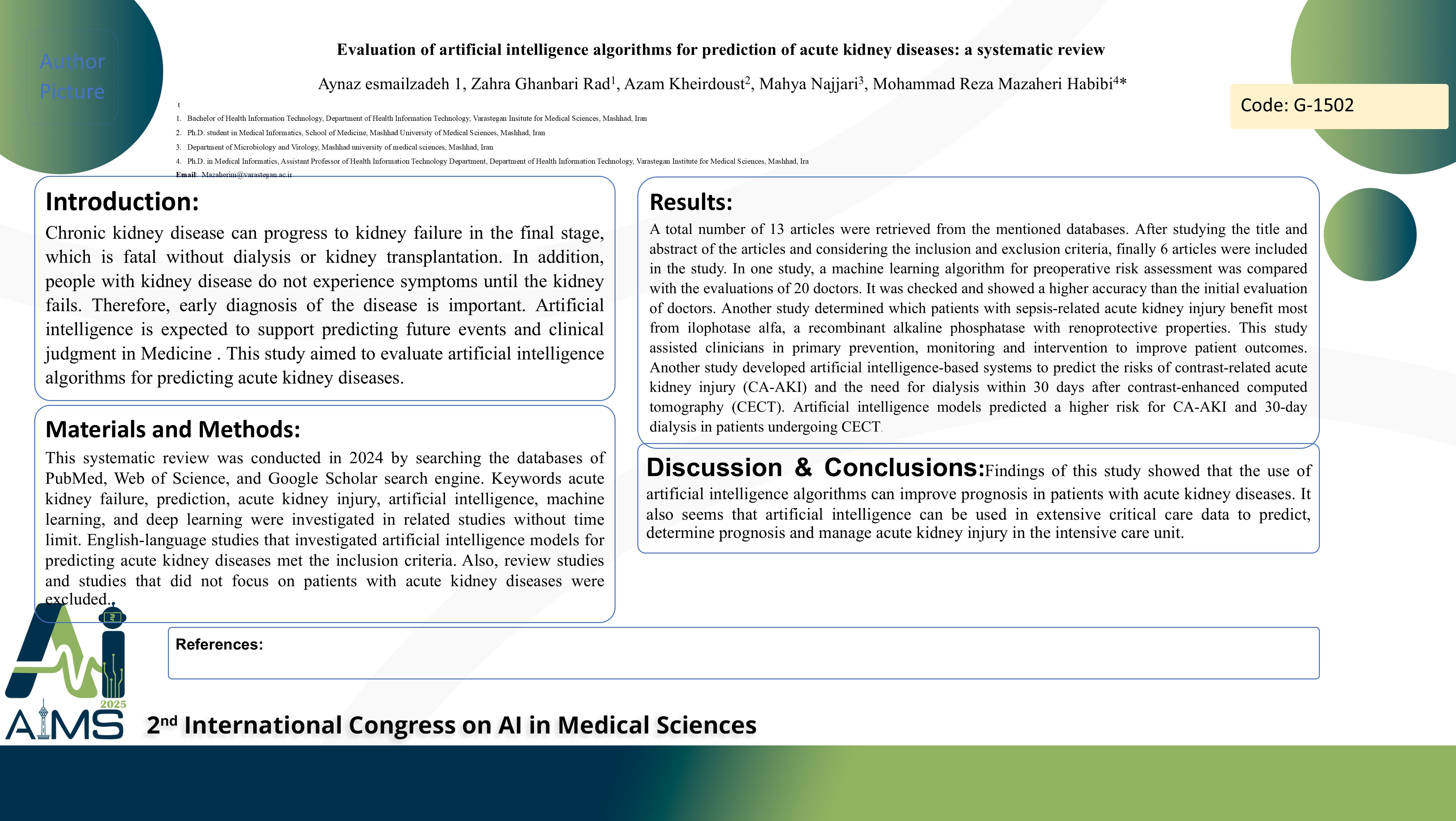Evaluation of artificial intelligence algorithms for prediction of acute kidney diseases: a systematic review
Code: G-1502
Authors: Aynaz Esmailzadeh ℗, Zahra Ghanbari Rad, Azam Kheirdoust, Mahya Najjari, Mohammad Reza Mazaheri Habibi *
Schedule: Not Scheduled!
Tag: Clinical Decision Support System
Download: Download Poster
Abstract:
Abstract
Introduction: Chronic kidney disease can progress to kidney failure in the final stage, which is fatal without dialysis or kidney transplantation. In addition, people with kidney disease do not experience symptoms until the kidney fails. Therefore, early diagnosis of the disease is important. AI is expected to support predicting future events and clinical judgment in Medicine Objective: This study aimed to evaluate AI algorithms for predicting acute kidney diseases. Method: This systematic review was conducted in 2024 by searching the databases of PubMed, Web of Science, and Google Scholar search engine. Keywords acute kidney failure, prediction, acute kidney injury, artificial intelligence, machine learning, and deep learning were investigated in related studies without time limit. English-language studies that investigated artificial intelligence models for predicting acute kidney diseases met the inclusion criteria. Also, review studies and studies that did not focus on patients with acute kidney diseases were excluded. Results: A total number of 13 articles were retrieved from the mentioned databases. After studying the title and abstract of the articles and considering the inclusion and exclusion criteria, finally 6 articles were included in the study. In one study, a ML algorithm for preoperative risk assessment was compared with the evaluations of 20 doctors. It was checked and showed a higher accuracy than the initial evaluation of doctors. Another study determined which patients with sepsis-related acute kidney injury benefit most from ilophotase alfa, a recombinant alkaline phosphatase with renoprotective properties. This study assisted clinicians in primary prevention, monitoring and intervention to improve patient outcomes. Another study developed AI-based systems to predict the risks of contrast-related acute kidney injury (CA-AKI) and the need for dialysis within 30 days after contrast-enhanced computed tomography (CECT). Artificial intelligence models predicted a higher risk for CA-AKI and 30-day dialysis in patients undergoing CECT. Conclusion: Findings of this study showed that the use of artificial intelligence algorithms can improve prognosis in patients with acute kidney diseases. It also seems that AI can be used in extensive critical care data to predict, determine prognosis and manage acute kidney injury in the intensive care unit.
Keywords
MachineLearning, Acute Kidney Injury, ArtificialIntelligence
